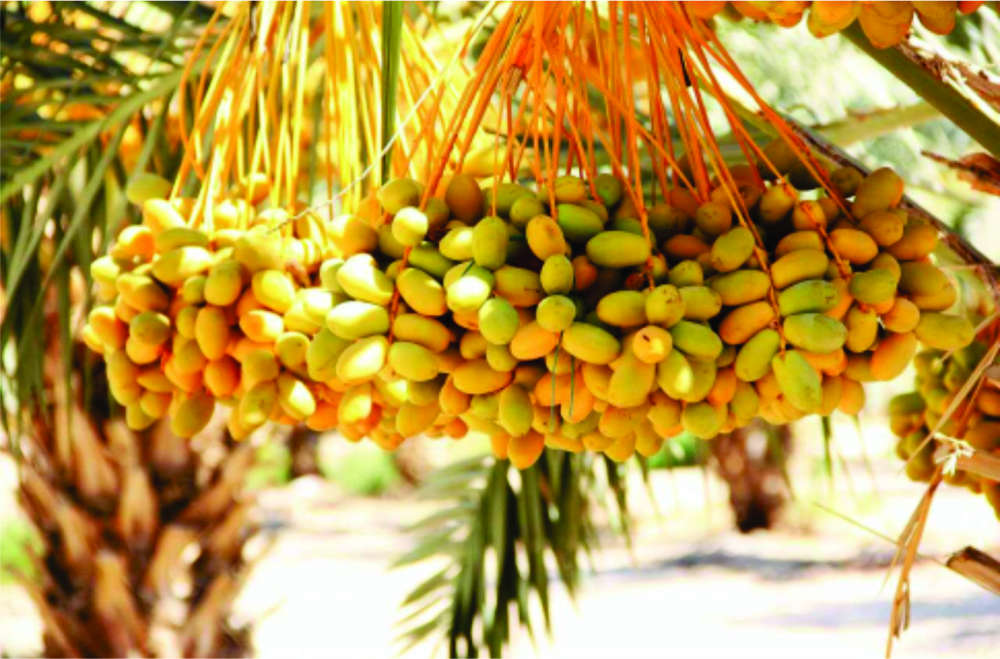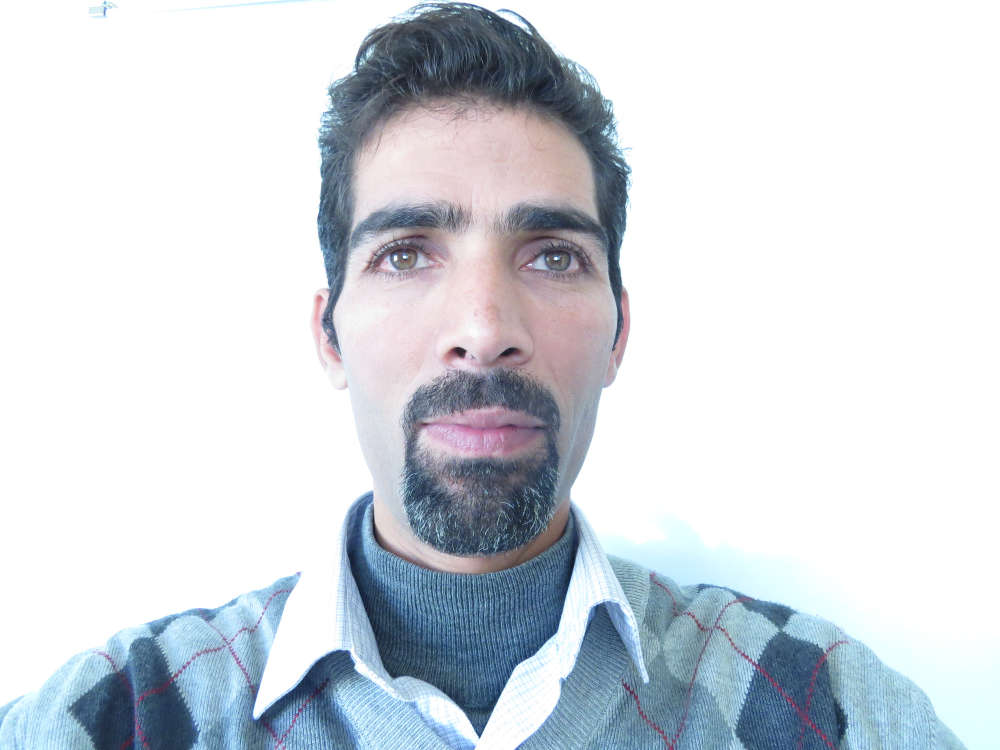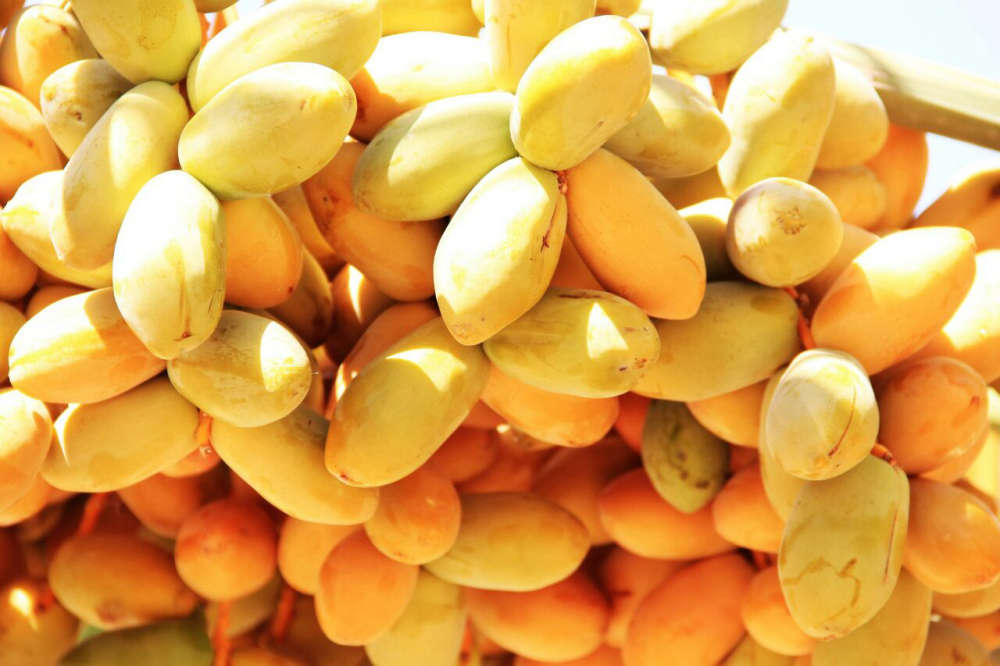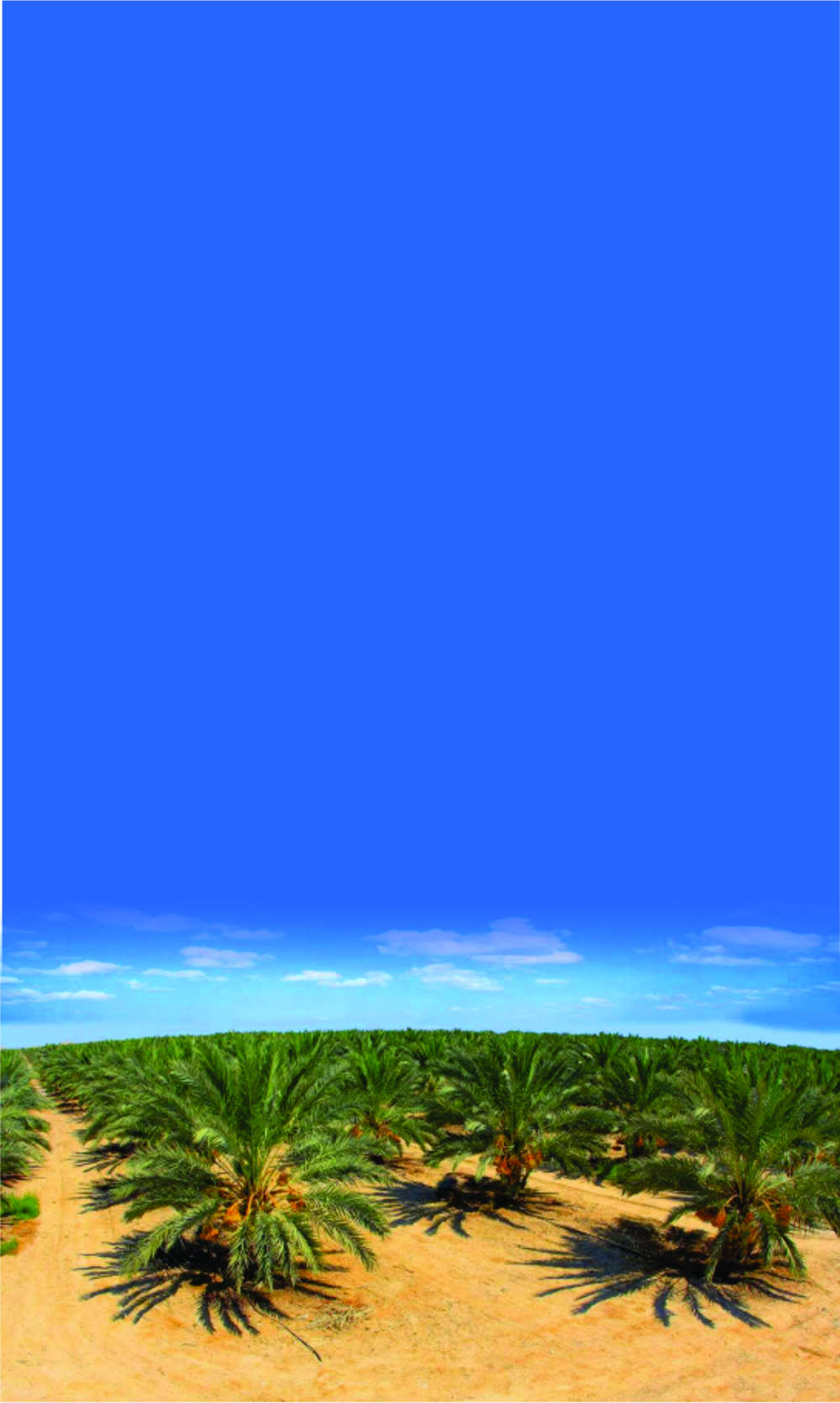“And shake towards thyself the trunk of the palm tree: It will let fall fresh ripe dates upon thee.” Verse 19, Souret Maryam, Holy Qur’an
Since ancient times, the production of dates in Palestine has depended on local varieties such as Berhi, Sukkari, Zhaidi, Dairi, and Hayyani. Dates are grown mainly in warm areas such as the Jordan Valley and the Gaza Strip. Until the year 2000, they were grown randomly and not considered a profitable crop. But since then, some pioneer farmers have begun to grow the Medjool variety that is suitable for export and in demand on the international market.
Only recently has the export of dates moved from random production to a systematized market. In 2000, Medjool date producers began to engage in export, utilizing mainly fair-trade marketing chains, even though Palestinian palm dates are considered of high, profitable, and unique quality. The success of these pioneers encouraged more farmers to become involved in the production of this crop, with the aim to be linked to the international market. As the new agricultural trend prompted the need for better organization, the year 2007 witnessed significant developments as new investors emerged, plantations were expanded, and new packing and cold-storage facilities were installed. Furthermore the Dates Association was established in Jericho as a first step in efforts to develop the Palestinian date sector, and its original membership of 15 has expanded to 120 Medjool date producers.
Dates have been grown in Palestine for thousands of years. They have been linked to the story of the Virgin Mary in the holy books and are mentioned as highly beneficial in a number of Qur’anic verses.
This year (2017), the estimated value of Medjool dates produced at the farm level does not exceed US$ 28 million. Given the estimated potential, however, this value could be doubled or tripled for the same yield if farmers switched their production from typical to best practices.* Moreover, the produced dates generate more than US$ 80 million for exporters. Already, the recently increased production has generated business and employment opportunities at various stages. For example, packing cost exceeds US$ 12 million, and this amount is paid largely to part-time workers who are hired from September to December. An estimated 72,000–80,000 working days are required at harvest time, excluding employees who deal with workers and staff on the export, logistics, and management levels. In other words, during harvest, around 800 to 1,000 laborers are needed per day. Readers may say that this number is very high, but in fact three years from now twice this number of workers may be needed.
A cost-benefit analysis reveals that, to farmers, the average cost of production per 1 kg of good- or poor-quality Medjool dates, on trees and pre-harvest, amounts to US$ 2.50, whereas the cost of harvesting and preliminary sorting costs about US$ 0.50. So when a farmer sells the product, he can earn US$ 0.50 per kilogram only if he sells the dates at US$ 3.50 (which is equivalent to about 12.25 NIS). For example, a date farmer who owns 50 trees that are six years old will need to sell 5,000 kg in order to earn US$ 2,500. The average cost charged by a packinghouse for the sorting and packaging of 5,000 kg of Medjool dates amounts to US$ 5,000 (at a price of US$ 1 per 1 kg, which brings the cost of 1 kg of dates up to US$ 4.50 at this stage). Here, the profit margin depends on proper management and on the efficiency of business managers, yet profits should be no less than 30–50 percent of the generated income. Whereas traders who collect the dates from farmers and export them to global markets face challenges related to currency fluctuation and risks associated with shipping goods abroad, they will always be in a stronger position than the farmers as they have more options. (It is worth mentioning that the Palestinian market features fewer than 15 such traders.) The gross sales price for dates of premium and A grades ranges from US$ 7–12, depending on the destination, quality of dates, size, market segment, and more.

So the question arises, what is required next? There is no doubt that the date subsector is growing and that production capacity is increasing dramatically. Three years ago, it amounted to less than 3,000 tons, this year the production has more than doubled; increases are expected to continue, and production may exceed 20,000 tons by the year 2020. On the farmers’ level, challenges are posed by the limited availability of laborers and by competition with the settlements that also act as employers in the Jordan Valley – thus it is recommended that workers be contracted three months ahead of the season and that incentives be offered.
Sector stakeholders agree that the vision for the date sector should be to sell high-quality Palestinian dates on global markets. To achieve this vision, a strategy document has been developed with a plan of action (PoA) that is to be implemented within the coming four to five years. This PoA aims to solve structural issues and focuses on four strategic objectives that aim to increase supply and to enhance not only the quality of dates but also the management capacities of date-palm producers, enabling them to respond to global market requirements.
Currently, achievements of the date sector extend over four main areas: Annual production has increased; it is estimated at 8,000 tons in 2017 and covers 50 percent of the local market – compared to 1,000 tons in 2007. Internationally, Palestinian dates are marketed in 22 countries throughout America, Europe, Russia, and the Gulf. Furthermore, Medjool dates from the Jordan Valley constitute a rare variety that grows in only a few areas worldwide (such as California in the United States). As they are produced with natural groundwater rather than recycled water at the settlement farms in the Jordan Valley, they furthermore have a political advantage in the fair-trade market and solidarity movements. Palestinian dates are of all grades (A, B, and C), with grade A scoring high in terms of competitiveness in local and international markets.
The Palestinian Palm Dates Association was established to represent date farmers and defend their rights. It aids in developing the capacities of association members and offers technical assistance. Thus, it has established a packing house for dates that can be accessed by members, and it links farmers with local and international marketing chains, facilitates participation in exhibitions, and organizes an annual date festival.
The challenges that face the palm-date sector, even though it has achieved significant growth, are related to the following facts.
• Less than 10 percent of the palm dates produced are graded as premium quality.
• Less than 30 percent are graded as class A, which affects marketing and profitability.
• The remaining 70 percent (grades B and C) go to the supply rather than the demand market, which lowers their value.
• Increases in production will increase the demand for irrigation water, while the allocation of water for Palestinians is decreasing year by year due to Israeli policies in the Jordan Valley.
• Only a limited number of brokers is available, which puts small farmers at a disadvantage.
• The limited number of packinghouses and storage refrigerators is not conducive to the expansion of production.
• Currency fluctuation reduces the interest of new traders to join the dates export business.
• The Gaza Strip can play only a limited role in exporting activities due to its dependence on a limited number of local varieties.
Steps recommended to assure a successful future of date farming with profitable crops that support Palestinian farmers and the national economy include the following: First, farmers should double the production of premium and grade A dates to reach 60 percent, so as to stabilize marketing chains. Second, the private sector must be invited to invest in date crops and improve its market systems and infrastructure, especially in terms of packinghouses and storage refrigerators, and better financing mechanisms must be available. Third, the capacity of the Palestinian Palm Dates Association must be enhanced to organize the marketing of dates and to protect farmers from broker monopoly. Fourth, potential donors must be approached and encouraged to invest in emerging markets, rather than donate aid money and engage in short-impact interventions; Palestine needs “Trade, not aid.” Fifth, local-variety and low-grade dates should be processed into date paste and syrup. And last but not least, the variety of dates produced in Gaza must be increased, so that Gazan products may be included in the niche market.
A palm-date business is a long-term investment that generates sustainable development. For example, a farm of 1,000 palm trees that costs US$ 500,000 in total investment and expenses over seven years has been valuated at US$ 1,000,000 in the seventh year. This farm has produced 70 tons of Medjool dates in the seventh year, and requires 2,000 working days to be maintained throughout a year.
Article photos courtesy of Khader Zawahreh.
*The author’s rough estimates as of November 2017 indicate that (given that the actual value depends on several factors such as quality, market segment, classes, export versus local market, and more) we could assume that if 40 percent of the produced dates were sold as A+ premium quality dates at a price of US$ 12 per kilogram, the generated income would amount to US$ 38.4 million; whereas the remaining 60 percent, which are of lower quality, can generate US$ 42 million.
“The State of Palestine National Export Strategy: Fresh Fruits, Vegetables and Herbs – Sector Export Strategy 2014-2018” is available at https://mail.google.com/mail/u/0/#inbox/15fbb686c27d673f?projector=1.




